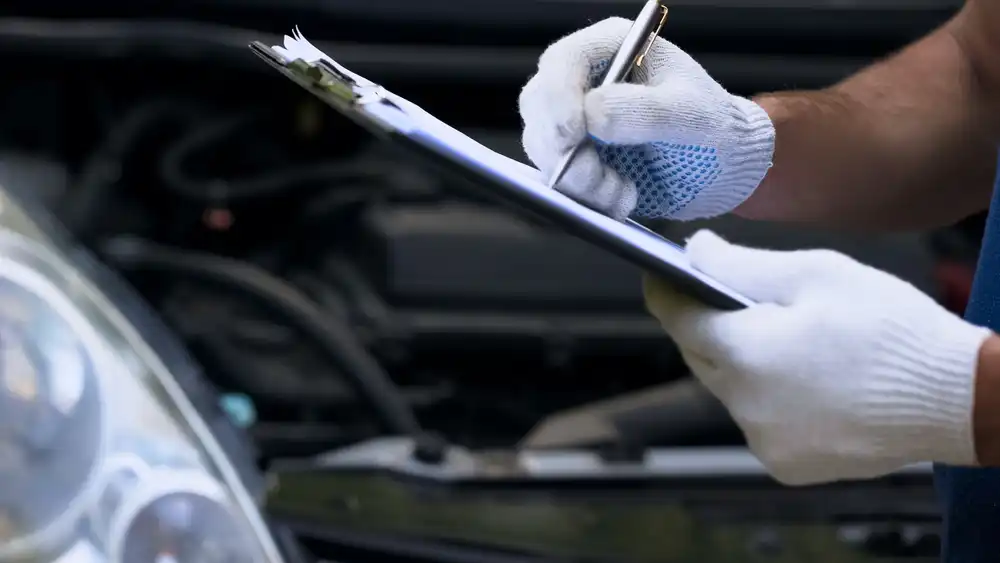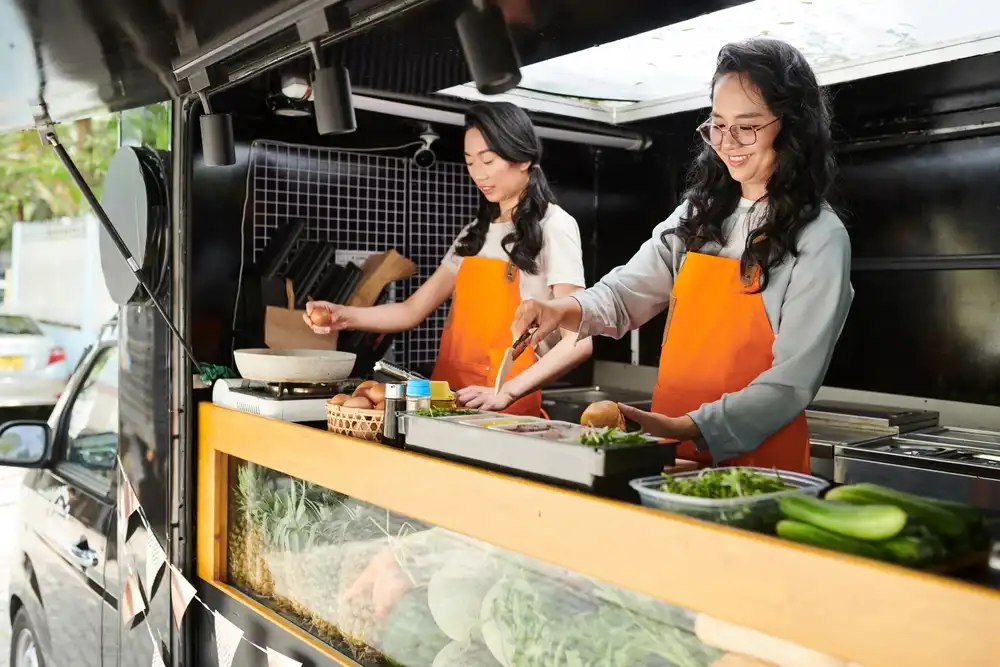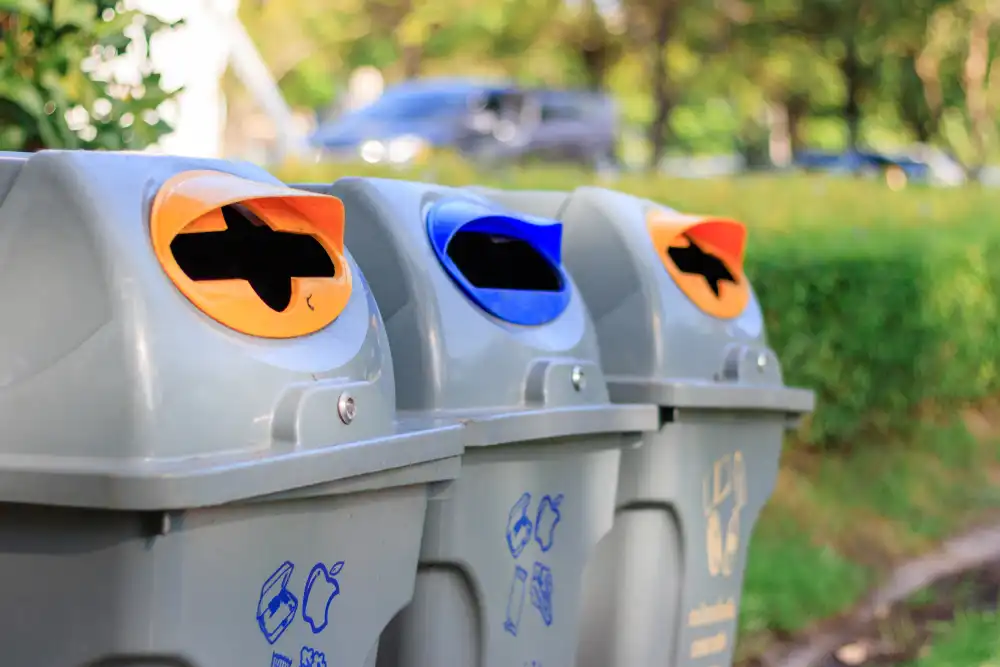How to Start a Food Truck Business in Austin, TX
Learn how to start a food truck business in Austin, Texas, including essential permits, inspections, and compliance steps to ensure a successful operation.
Tauseeq Magsi
loading...

You have chosen to make your food truck dream come true in Austin, Texas. That's great news, because Austin is known for its wide range of tasty foods.
With its lively culture and many events, it's a great place for mobile cuisine.
To start a food truck, you need more than just great meals, though. You have to figure out how to follow the city's rules, deal with the weather, and find the best places to serve your customers.
This guide will walk you through each step needed on how to start a food truck business in Austin. We'll cover everything from creating your business plan and securing permits to finding the right truck and staff.
By the end, you'll have a clear path to turning your food truck dream into reality.
Why Start a Food Truck Business in Austin, TX?
Austin's big events and growing food scene make it a good place for food trucks to sell their products and services. People come to this city from all over the world to enjoy its delicious and varied food culture.
Travelers and people who like trying new foods make the chances of success very high.
However, Austin's weather can be a bit tricky. Summers can get very hot, and thunderstorms can be unpredictable. But don't worry, there are ways to tackle this. Investing in good equipment like cooling systems and sturdy shelters can help you stay prepared.

Plus, having a clear plan for dealing with different weather conditions will keep your business running smoothly. This practical approach is essential when figuring out how to open a food truck in Austin.
How To Start A Food Truck In Austin: Your Guide to Success
So, you are starting a food truck in Austin.
Austin's bustling food truck scene is where passion meets opportunity. Did you know that there are over 1,000 food trucks in the city?
This booming number shows just how popular food trucks are here. It means there is a big appetite for fresh and unique dining experiences.
But how do you stand out and succeed?
This step wise guide will help you with everything necessary to get started. From planning your business to following local regulations, we'll cover it all.
Let's get ready to turn your Austin's food truck dream into reality.
Step 1: Begin with a Detailed Business Plan
Creating a business plan is the first step in starting your food truck in Austin.
Outline your goals clearly, such as what you want to achieve in the first year.
Decide on the types of food items you will offer and make a sample menu.
Think about who your target market is.

Are you aiming to serve office workers during lunch hours, or are you looking to attract weekend festival-goers?
Making a budget is an important part of this plan. Find out how much money you need to run your business. Costs like your food truck, permits, equipment, products, advertising, and so on should be included.
It also helps to see what your Austin competitors are doing. This can help you figure out what works well and what you need to add.
A good business plan will help you figure out what to do. Staying focused on your goals and making smart choices will be easier with this.
Step 2: Secure the Necessary Permits and Licenses to Operate Your Food Truck in Austin
For anyone selling food or beverages from a mobile unit, the Mobile Food Vendor Permit is essential. The type of permit you need depends on how you handle your food.
Knowing how to get a food truck license in Austin is a key step.
Here's what you need to do:
First, visit the Austin Public Health Department at 1520 Rutherford Lane, Building 1, Suite 205. Bring all required application materials with you.
Here's a breakdown of each permit:
Unrestricted Permit
This is for vendors who handle open food or drinks. The fee is $239, plus an application fee of $158.
Restricted Permit
This is for vendors who only handle pre-wrapped food or drinks. The fee is $212, plus an application fee of $158.
If a fire inspection is needed, an additional fee of $266 applies.
Fire Permit
To legally operate your food truck in Austin, it's crucial to get a fire permit from the Austin Fire Department. Any mobile food vending unit (MFV) using propane or electrical appliances that produce smoke or grease-laden vapors needs to pass an inspection.
This applies to all food trucks, even those visiting from outside Austin. Operating without this inspection could result in fines or shutdowns. This is what you will be needing for getting these permits:
Notarized Central Prep Facility (CPF) Agreement:
This document confirms that you have a designated and approved kitchen to store and prep your food when you're not on the truck. Notarization means an official has witnessed the signing.
Sales Tax ID Number:
You'll need to register your business and get a Sales Tax Permit from the Texas Comptroller of Public Accounts. This allows you to collect sales tax from your customers. You can do this online, and it's free.
Valid Government IDs:
Bring valid government-issued IDs for all business owners and anyone responsible for the food truck. This is to verify everyone's identities.
Original Certified Food Manager Certificate:
At least one person on your team must complete a Food Manager Certification course . This shows you understand food safety practices. The course usually costs between $100 and $150.
Proof of Ownership Documents:
Provide documents that prove you have registered your business with the State of Texas or Travis County. These are your business formation documents like LLC papers or a DBA (Doing Business As) certificate.
Step 3: Schedule an Appointment
Once your application is accepted and payment is made, you'll get an appointment card. This card will have a date and time for bringing your mobile vending unit for inspection.

These appointments are scheduled in 30-minute slots. Make sure your unit is ready for inspection on the appointed day. If you miss it, you'll need to arrange a new appointment.
Step 4: Prepare Your Mobile Vending Unit
Get your unit ready according to the requirements . Unit inspections may need a generator or internal power source to verify running hot water and refrigeration. Ensure everything works properly before your appointment.
You might also need an inspection by a plumber or electrician, depending on your unit's water/electricity setup.
Step 5: Arrive for Inspection
You should bring your mobile selling unit to 1520 Rutherford Lane on the Tuesday or Thursday that works for you. You don't have to go to the office upstairs. The Environmental Health Officer and Fire Marshal will check out your unit in the parking lot instead.
Starting the process 45 days before your permit expires is a good practice to prevent any downtime.
Pro Tip: Don't show up without an appointment. Remember, you cannot bring your mobile vending unit without an appointment. It won't be inspected, and there are no exceptions.
Step 6: Find and Secure a Central Prep Facility for Your Food Truck in Austin
Starting a food truck business in Austin requires meticulous planning, especially when it comes to meeting permit requirements.
To complete pages 2 and 3 of the Application for a Mobile Food Vendor Permit, you need to find a certified Central Prep Facility. This facility will be the place where you prepare and store your food before you hit the road.
A Central Prep Facility is important because it ensures your food is handled in a safe and sanitary environment, which is a key requirement from health authorities in Austin.
Look for facilities that are already certified and meet local health and safety standards. This could be a shared commercial kitchen or a commissary that caters to food trucks.
Having a reliable Central Prep Facility isn't just about compliance; it also sets the foundation for maintaining high food quality and hygiene standards for your customers.
Make sure to thoroughly check the facility's credentials and operational hours to see if they align with your business needs. By securing a good facility, you're one step closer to fulfilling the permit requirements and getting your food truck business rolling smoothly in Austin.

Step 7: Get Insurance for Your Food Truck
When you're starting a food truck business, insurance isn't just a good idea — it's a must-have.
As soon as you buy your truck, make it a priority to invest in comprehensive insurance coverage. This includes liability insurance and property coverage valued at $1,000,000. Having insurance right from the get-go means you're covered if unfortunate events like accidents or theft occur.
Don't forget about commercial auto insurance, which is essential before you hit the road. This type of coverage is specifically designed for vehicles used for business purposes, like your food truck. It protects you when you're driving on public roads.
Also, remember that many property owners who allow food trucks to operate on their premises typically require at least $1,000,000 in general liability insurance. This coverage is useful because it helps shield you from claims related to injuries or damages that might happen as a result of your business activities.
Taking these steps ensures that you're protected and meets the requirements for being a responsible food truck owner in Austin. Always check with insurance professionals to find the best options tailored to your specific needs.
Step 8: Select the Best Locations in Austin for Your Food Truck
Choosing the right location can make or break your food truck business.

In Austin, there are specific zones where you're allowed to operate food trucks. It's essential to familiarize yourself with these areas to avoid any legal hassles.
Research these permitted spots and identify which ones align best with your target audience. High foot traffic areas such as downtown, festival sites, and busy neighborhoods are generally good bets.
Always check for any updated regulations or restrictions specific to Austin to ensure you stay compliant.
Step 9: Ensure Proper Staffing and Streamlined Operations
For your food truck to operate smoothly, you need a well-organized team.
At the very least, you'll need one cook to handle the kitchen and one cashier or server to manage customer orders and payments. During peak times or if you have an extensive menu, you might need to hire additional staff to keep up with the demand and maintain high service standards.
Properly training your team and clearly defining roles can lead to more efficient operations and happier customers.

Step 10: Implement Effective Waste Management Practices
Taking care of waste the right way is important for keeping things clean and avoiding big fines.
In Austin, partnering with local waste management companies can offer efficient waste removal services. Some commissary kitchens in the area also provide waste disposal options as part of their services.

It's important to have a clear plan for waste management to keep your operations clean and sustainable. Regularly disposing of waste will
Step 11: Ensure Reliable Access to Utilities
A food truck needs consistent access to water and electricity to function properly. Many commissary kitchens in Austin offer these utilities as part of their rental package. This can be a convenient and reliable option for your water and power needs.
Alternatively, you might consider using portable generators for electricity and water tanks for your water supply.
Always ensure your equipment is in good working condition to avoid any operational hiccups.
Step 12: Consider Adding Extra Amenities for Customer Comfort
While not absolutely necessary, adding a few extra touches can significantly enhance the customer experience. Providing amenities like small, easy-to-pack plastic tables and chairs can make your food truck a more inviting place to eat.
Choose weather-resistant options to ensure they hold up well in various conditions.
Such small touches can make a big difference, helping to attract more customers and encouraging them to stay longer.
Takeaways on How to Start a Food Truck in Austin, TX
Launching your food truck business in Austin can be rewarding if you stay dedicated.
With consistent effort, you could be up and running within six months. To stay on track, mark your target date on the calendar and plan each step, working backward from that date.

By following these steps on how to start a food truck business in Austin, you'll be well on your way to opening your mobile kitchen.
Take it one step at a time, stay organized, and don't hesitate to consult professionals when you have questions.
©2025 Cocina Digital Hospitality Group, Inc. All rights reserved.
No part of this publication may be reproduced, stored in a retrieval system, or transmitted in any form or by any means, electronic, mechanical, photocopying, recording, or otherwise, without the prior written permission of the publisher.
We use cookies to enable you to use our site, understand how you use our site, and improve your overall experience.
Cookies allow us to personalize content, track which pages are most popular and least popular, and provide advertising that may be relevant to you.
Please note that cookies that are essential to the proper functioning of the site are required and cannot be disabled.
They are usually only set in response to actions made by you which amount to remembering your settings, a request for services, such as setting your privacy preferences, logging in, or filling in forms.
As such, they are the only cookies that are enabled by default.
You can set your browser to block or alert you about these cookies.
By continuing to use our site, you accept our use of cookies.